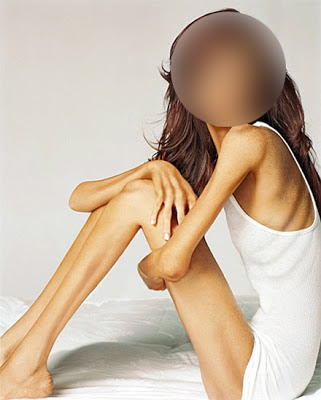The biggest challenge in treating anorexia nervosa is to help you recognize the person who has a disease. Most people who suffer this type of anorexia denies having an eating disorder and often enter treatment only once their condition is serious.
The goals of treatment are to first restore normal body weight and eating habits. They have many different programs designed to treat anorexia. Sometimes the person may gain weight:
- Increasing social activity.
- Decreasing the amount of physical activity.
- Using schedules for eating
- Feeding plan designed for professional
Many patients start with a short hospital stay and follow-up with a day treatment program. It may require a longer hospital stay if:
- The person has lost a lot of weight, as be below 70% of their ideal body weight for their age and height. For serious and life-threatening malnutrition, the person may require intravenous feeding or a feeding tube.
- Weight loss continues despite treatment.
- Medical complications such as heart problems, confusion, or low potassium levels.
- The person has severe depression or thinks about committing suicide.
The health professionals are usually involved in these programs include:
- Mental health professionals (psychologists, therapists, psychiatrists)
- Nurses
- Doctors
- PAs
- Nutritionists and dietitians
Treatment is often very difficult and requires hard work on the part of patients and their families. It is possible that many therapies are tested until the patient succeeds in overcoming this disorder.
Patients may drop out of programs if they have unrealistic hopes of being "cured" with therapy alone.
They use different types of psychotherapy to treat people with anorexia:
- Individual cognitive behavioral therapy (a type of psychotherapy), group therapy and family therapy have all been successful.
- The goal of therapy is to change the thoughts or behavior of a patient in order to encourage them to eat in a more healthy. This kind of therapy is useful for treating younger patients who have not had anorexia for a long time.
- If the patient is young, therapy may involve the entire family. The family is seen as part of the solution rather than the cause of the eating disorder.
- Support groups can also be a part of therapy. In these groups, patients and families meet and share what's happened.
Medications such as antidepressants, antipsychotics and mood stabilizers may help some anorexic patients when given as part of a complete treatment program. Examples include:
- Antidepressants, especially selective inhibitors of serotonin re uptake (SSRI)
- Overlapping (Zyprexa, Zydis) or other antipsychotics
These medicines can help treat depression or anxiety.
Although these drugs may help, no medication has been shown to reduce the desire to lose weight.

hmm..nice info ^^
ReplyDelete